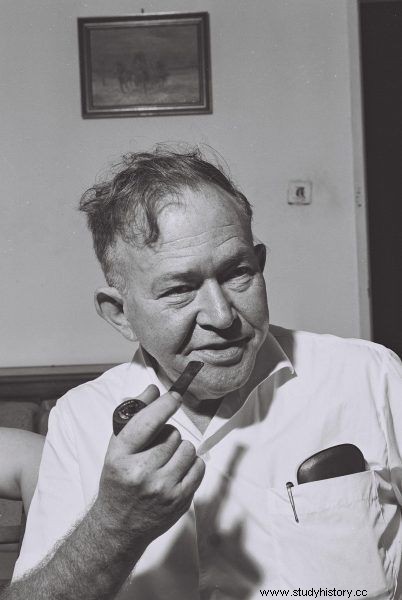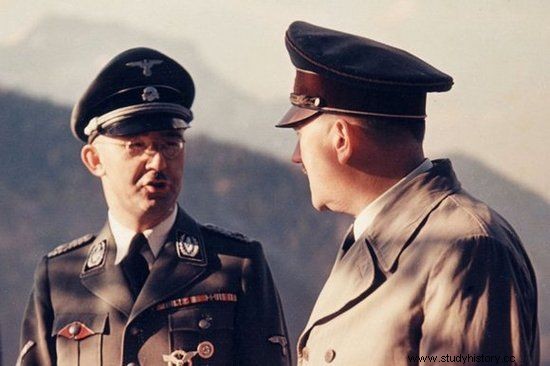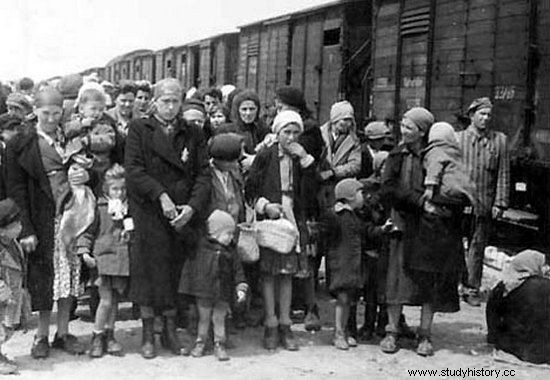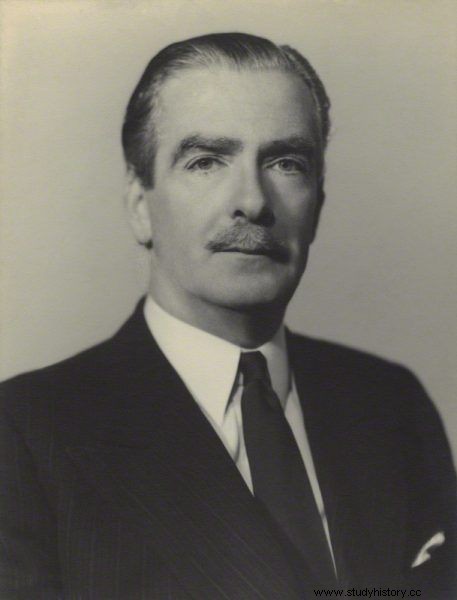On March 19, 1944, German military units entered Hungary. That day ended not only the relative independence of Germany's former ally, but also the security of the Jews living in Hungary. The Nazi butcher Adolf Eichmann was already preparing to exterminate hundreds of thousands of people when he suddenly sniffed a much better opportunity. Instead of killing Hungarian Jews, he decided to ... sell them.
On May 8, 1944, Joel Brand, representing the Help and Salvation Committee, appeared in Eichmann's office. It was a Zionist organization, so far helping Jews to escape from occupied Europe to Hungary and beyond. During the conversation, he heard from his host a shocking proposal, which Alex Kershaw writes about in his book "Wallenberg's Mission".
The Obersturmbannführer was said to have said:
- I'm ready to sell you a million Jews , blood for money, money for blood. You can take them from any country you want, wherever you find them - from Hungary, from Poland, from the eastern territories, from Theresienstadt, Auschwitz, where do you like it from? Who do you want to save? Men begetting offspring? Women who can give birth to them? Kids? Old men? Sit down and answer.

Joel Brand. He was ready to give Himmler ten thousand trucks for the lives of a million people ... Here in a photo from 1961 (Source:Wikimedia Commons, Public Domain).
Surprised by such a "commercial" offer, which was said to have come from Heinrich Himmler himself, Brand replied that the Committee was prepared to pay a ransom for any Jew if that would save them from extermination.
It soon turned out, however, that Eichmann was not after the Committee's money or Hungarian goods. He expected Brand to go abroad to establish contact with Zionist organizations and the Allies, and then to return to Hungary with a specific, sufficiently generous offer.
Ten thousand trucks for one million Jews
The Obersturmbannführer was supposed to take care of arranging the documents necessary for the trip. Unable to make such important decisions on his own, Brand asked for time to contact the members of the Jewish Agency. The overly benevolent Eichmann didn't mind.
Two days later (May 10), Brand was again summoned to the office of a man with the lives of hundreds of thousands of people in his hands. Having received the approval of the Jewish Agency to negotiate with the criminal.

Heinrich Himmler himself (source:wikimedia commons, public domain) was supposed to be behind Brand's offer.
So he communicated to Eichmann that he was ready to leave immediately and that he would most likely be able to offer him a substantial amount in foreign currency. The SS man once again stated that he was not interested in money, turning to the surprised Brand:
- Give me ten thousand trucks and I'll give you a million Jews. You can give the Allies the absolute guarantee to my word of honor that these trucks will never be used in the West. They are needed for exclusive use on the Eastern Front.
When asked by Brand what are the guarantees that one million Jews would actually be released, the Obersturmbannführer stated:
- If you return from Istanbul with the message that the offer has been accepted, I will close Auschwitz and set aside ten percent of the million promised. You will be able to take a hundred thousand Jews and then bring me a thousand trucks. We will continue to trade in this way - a thousand trucks for every hundred thousand Jews. You can't ask for anything more meaningful.
Hearing this irresistible offer, Brand went to the exit, but before reaching the door, Eichmann almost inadvertently threw that he should hurry up because he was not joking.
We don't get along with the enemy
Joel Brand wasted no time left for Istanbul, leaving his wife hostage in Budapest. In Turkey, a meeting was to take place with Mosze Szarett, who at that time was the head of the Jewish Agency. The latter, however, did not arrive, so Brand traveled to the Syrian city of Aleppo, where he hoped to contact Allied representatives to discuss Eichmann's offer with them.
He arrived on June 10, but did not even get off the train when an unknown Englishman approached him. After making sure that he was dealing with Brand, he led him out of the train, in front of which the jeep was waiting with the engine running. Brand was forcibly pushed into the car and driven to the barracks. As it turned out, he was kidnapped by British intelligence .
The next day, a meeting with British officers was held in a luxurious villa. Brand explained to them in detail the offer made by Eichmann and pleaded for release to fulfill his mission. The British, however, had other plans for him.

Could the tragedy of Hungarian Jews exiled to Auschwitz be prevented? Would a German criminal keep his word?
He was taken to Cairo, where he was subjected to many hours of interrogation for several days. A British resident minister in the Middle East - privately a friend of Winston Churchill - Lord Moyne was to be a participant in one of such "séances". In Brand's words, he said: What can I do with these million Jews? Where should I put them?
A similar tone is heard in a report sent by the British to the US Department of State, which Alex Kershaw quotes in his book. We read in it:
Assuming that the proposal was issued by the Gestapo as communicated to us, it looks like a typical case of blackmail or political war ...
The indirect suggestion that we should assume the responsibility of supporting an additional million people is equivalent to asking the Allies to suspend key military operations.

In the end, the Allies did not agree to Eichmann's terms. The fear of being accused of negotiating with the enemy decided. At least that's what British Foreign Minister Anthony Eden said.
Ultimately, the refusal was primarily due to the reluctance of Roosevelt and Churchill to take any action that might appear to be negotiating with the enemy. At least such an explanation was given on 6 July 1944 in an interview with Mosze Szarett by the British Foreign Minister, Anthony Eden.
Of course, one should doubt Eichmann's (or rather Himmler's) good intentions. But maybe it was worth playing a game with them that could result in the suspension of deportation or even the closure of the Auschwitz camp?
Source:
- Alex Kershaw, The Wallenberg Mission. Duel with Eichmann for the lives of 100,000 Jews , Character Literanova, 2011.
